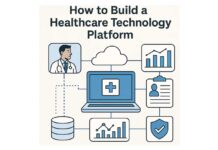Expanded access, also known as “compassionate use,” allows patients with severe or life-threatening illnesses or conditions to obtain an investigational medical product for treatment outside clinical trials. This occurs when no other treatment options are equally effective.
Patients have access to treatment that would have been unavailable to them before, which is a huge boon for life-threatening illnesses. Additionally, EAPs can lend a hand to patient advocacy groups, which can lead to the establishment of a network and the delivery of supplementary services to families and patients.
When patients have exhausted all other options, doctors may prescribe unapproved medications. Thanks to this, patients can stay alive while enjoying a high standard of living. Once the treatment receives approval, doctors will gain more knowledge and experience with the drugs, enabling them to continue prescribing them. The doctor has the potential to become a KOL, or Key Opinion Leader, an influential figure in the field who is well-respected for their knowledge and skill in medicine. In the pharmaceutical industry, key opinion leaders (KOLs) play an advisory role in both the regulatory agency and the product development processes.
Pharmaceutical companies that plan EAPs early in the product development process enhance their overall strategy by establishing a cross-functional action plan to achieve their objectives. Patients and doctors alike can take part in EAPs, which provide early medication exposure.
The ability to collect data outside of clinical trials to get RWD/E is one of the biggest advantages. The data’s quality determines its potential use in a variety of post-approval enhancements and promotions, including marketing authorization and reimbursement, additional product development, and more.
Clinical trials and the FDA’s licensing process protect patients in the US from potential harm and prevent them from wasting time and money on medications that won’t work for their condition. The Food and Drug Administration (FDA) conducts evaluations to ensure the reliability and credibility of information from clinical research projects.
Participating in a clinical trial is one of the few opportunities for a substantial number of individuals suffering from terminal and/or severe illnesses (you can find expanded access programs here) to receive a potential medication. Unfortunately, not everyone has this option available for them. Some people may not be able to participate in a trial because they do not meet the enrollment requirements, and others may not live in close enough proximity to a trial site to do so. The potential inadequacy of participation may prevent some individuals from participating in a study. The average duration of amyotrophic lateral sclerosis (ALS) is three to five years following diagnosis; however, the three-stage clinical trial process can extend up to ten years to completion. This is particularly difficult for people who have a terminal illness or other condition that shows symptoms quickly.
In recent years, both the general public and lawmakers have expressed an interest in expanding access. The general public is also the subject of the investigation. After the FDA implemented expanded access regulations in 2009, many people used social media to demand access to experimental drugs for specific individuals. This increased to online petitions and campaigns. And right-to-try bills are still making their way through state legislatures, allowing companies to sell experimental drugs without interference from the FDA.
Collecting massive amounts of data and collaborating with numerous stakeholders are prerequisites for offering expanded access programs to specific patients. The success of the expanded access strategy is dependent on the collaboration of multiple stakeholders, including the FDA, doctors, pharmaceutical companies, and institutional review boards (IRBs). An initial contact between the pharmaceutical company and the patient’s doctor is required to determine whether the drug is available for supply. After receiving company approval, the doctor must apply to the FDA and obtain IRB approval. The FDA may authorize the administration of the emergency drug electronically, such as over the phone, if it cannot process a formal request. It is important to note that the patient must give informed consent before the experimental medication is administered, even if a formal request is made later.
In recent years, the industry as a whole has recognized the growing importance of patients, doctors, and businesses seeking a well-functioning expanded access program. This has led to a shift in emphasis from supply-only solutions to more all-encompassing “comprehensive approaches” that can bolster the aims of medical governance and clinical development simultaneously.
Improving the uptake and quality of an expanded access program as a whole may be possible by understanding patient needs and allowing for the right amount of physician-centricity. This is particularly the case when better strategic positioning of these programs’ value necessitates gathering data and other insights.







